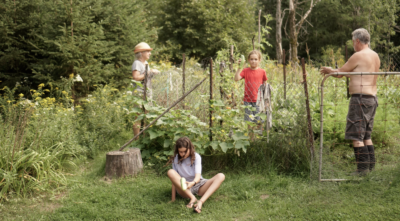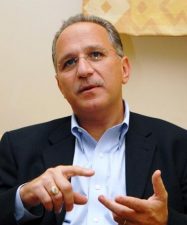Each week Orthodox Jews read one segment of the Five Books of Moses so that they can complete the entire Five Books within the course of a year. In last week’s Eco-Rabbi post we discussed the power of symbols. This week continues with discussing of water and life.
Pharaoh finally agrees to let the Jewish people leave from Egypt. However, after six days of not having his slaves anymore, Pharaoh had a change of heart. He sent out his army and chased the Jews to the Reed Sea. With nowhere to go, the Jewish people, literally between a rock and a hard place, turn to God.
The Bible describes how over night a great wind blew and created a dry pathway through the sea. “And the waters were a great wall surrounding them on their left and on their right.” But when they were all through, and the Egyptians followed, the walls came tumbling down and destroyed the strongest ancient empire in one fell swoop.
Many cultures hold water in the highest regard attributing to it, and rightfully so, their life. “Vodka” actually technically means “little water” a shortened version of the original “zhiznennia voda” or “water of life.” The Gealic word for whiskey is “usquebaugh” also meaning “water of life.” The connection between water and life are found throughout mankind’s cultures.
In Judaism we call our Bible “water of life.” Many hassidim and mystics will claim to get drunk off of their learning. The description of the Jewish people’s salvation through water shows to what high a regard Judaism holds water.
After leaving the sea behind the Jewish people travel three days in the desert and do not find water. This is the power of water. So shortly after being saved from slavery and then the hands of the Egyptian army there is already dissent and displeasure with God.
Moses finds a well but the waters are bitter and no one can drink them. God explains to Moses how to sweeten the waters. But the commentaries take this story as a metaphor for life. Water is equated with the Bible in Judaism. The Rabbis explain that from that lesson Moses taught us that we cannot go three days without studying the Bible.
If you go into any synagogue around the world for morning prayers you will find on Monday and Thursday morning a special ceremony in which we read form the Bible. It is such, so that we will not go three days without the Bible.
The Bible, water, life, these are interconnected in our tradition. In today’s modern world it is easy to forget how dependent on water we are. All one has to do is turn on the faucet and water comes pouring out. Let us not forget how precious water truly is, I don’t think one needs to walk through a sea on dry land to see quite how much power it has over our lives.
Image Credit: Hypergurl





“Orthodox Jews read one segment of the Five Books of Moses” — only orthodox jews? c’mon rabbi jack, you know better than that! smoochies!